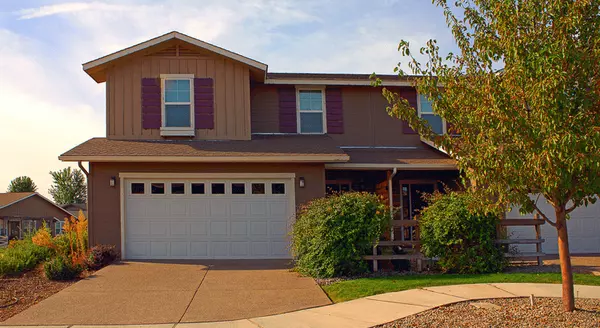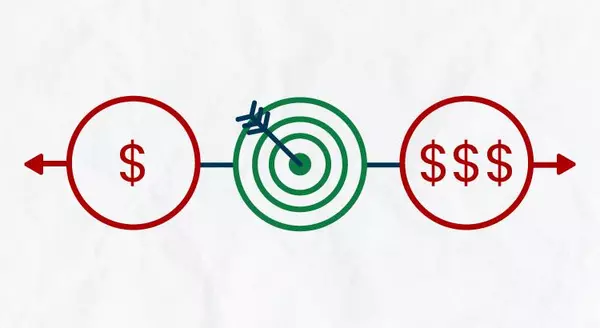

Celebrating Juneteenth in Coastal Mississippi
Juneteenth is a time of reflection, education, and jubilation as we gather to pay homage to the struggles and triumphs of the African American community. On June 19, 1865, federal troops arrived in Galveston, Texas, where U.S. General Gordon Granger read General Order No. 3, informing the citizens of Texas that all enslaved people were free. The "Freedom Day" celebrations that followed that announcement became known as Juneteenth, and more than 150 years later, Juneteenth remains the longest-running African American holiday in America. The
Read More

Questions You May Have About Selling Your House
There’s no denying mortgage rates are having a big impact on today’s housing market. And that may leave you with some questions about whether it still makes sense to sell your house and make a move.Here are three of the top questions you may be asking – and the data that helps answer them.1. Should I Wait To Sell?If you’re thinking about waiting to sell until after mortgage rates come down, here’s what you need to know. So are a ton of other people.And while mortgage rates are still forecasted to come down later this year, if you wait for that to happen, you may be dealing with a lot more competition as other buyers and sellers jump back in too. As Bright MLS says:“Even a modest drop in rates will bring both more buyers and more sellers into the market.”That means if you wait it out, you’ll have to deal with things like prices rising faster and more multiple-offer scenarios when you buy your next home. 2. Are Buyers Still Out There?But that doesn’t mean no one is moving right now. While some people are holding off, there are still plenty of buyers active today. And here’s the data to prove it.The ShowingTime Showing Index is a measure of how frequently buyers are touring homes. The graph below uses that index to show buyer activity for March (the latest data available) over the past seven years:You can see demand has dipped some since the ‘unicorn’ years (shown in pink). That’s in response to a lot of market factors, like higher mortgage rates, rising prices, and limited inventory. But, to really understand today’s demand, you have to compare where we are now with the last normal years in the market (2018-2019) – not the abnormal ‘unicorn’ years. When you focus on just the blue bars, you can get an idea of how 2024 stacks up. And that gives you a whole new perspective.Nationally, demand is still high compared to the last normal years in the housing market (2018-2019). And that means there’s still a market for your house to sell.3. Can I Afford To Buy My Next Home?And if you’re worried about how you’ll afford your next move with today’s rates and prices, consider this: you probably have more equity in your current home than you realize.Homeowners have gained record amounts of equity over the past few years. And that equity can make a big difference when you buy your next home. You may even have enough to be an all-cash buyer and avoid taking out a mortgage altogether. As Jessica Lautz, Deputy Chief Economist at the National Association of Realtors (NAR), says:“ . . . those who have earned housing equity through home price appreciation are the current winners in today's housing market. One-third of recent home buyers did not finance their home purchase last month—the highest share in a decade. For these buyers, interest rates may be less influential in their purchase decisions.”Bottom LineIf you’ve had these three questions on your mind and they’ve been holding you back from selling, hopefully, it helps to have this information now. A recent survey from Realtor.com found more than 85% of potential sellers have been considering selling for over a year. That means there are a number of sellers like you who are on the fence.But that same survey also talked to sellers who recently decided to take the plunge and list. And 79% of those recent sellers wish they’d sold sooner. If you want to talk more about any of these questions or need more information, contact a real estate agent.
Read More

How Many Homes Are Investors Actually Buying?
Are big investors really buying up all the homes today?If you’re trying to find a house to buy, this may be something you’re wondering about. Maybe you’ve read about it or seen reels on social media saying investors buying all the homes is making it even harder to find what the average buyer is looking for. But spoiler alert – there’s a lot of misinformation out there. To clear things up, here's the scoop on what's really happening. A lot of the big investor activity is actually in the rearview mirror already.The Wall Street Journal (WSJ) explains:“Investors of all sizes spent billions of dollars buying homes during the pandemic. At the 2022 peak, they bought more than one in every four single-family homes sold, though more recently their activity has slowed as interest rates rose and supply became tighter.”The key here is investor activity has slowed significantly, and even during the peak of investor buying, 3 out of every 4 single-family homes purchased were by regular, everyday buyers – not investors. And of the investors who bought over the past few years, most weren’t the big investors you may be hearing about. The vast majority were small mom-and-pop investors – people like your neighbors who own only a couple of homes, maybe even just their main residence and a vacation home.But let’s focus on the giant, mega-investor firms since that's what is being talked about so frequently on social media right now. Mega investors are those who own 1,000+ properties. You may be surprised to see that, according to the Wall Street Journal, they don’t buy all that many homes (see graph below):This graph tells us two things. First, institutional investors were never buying a large percentage of available homes. During the peak in 2022, they bought about 2% of available single-family homes. Second, that percentage has gotten even smaller recently (so small the number rounds down to 0%).In an effort to understand why that percentage is trending down, private lender RCN Capital asked investors about the challenges they’re facing. Here’s what Jeffrey Tesch, CEO of RCN Capital, found out:“Investors are already facing many challenges in today’s housing market – rising prices, limited inventory, and higher financing costs.”Understanding these challenges is important because they show big, mega investors aren’t taking over the housing market.So, don't fall for everything you hear. They aren't snatching up all the homes and making it impossible for regular people to buy. Bottom LineBig investors aren’t buying all the homes out there. If you've got questions about what you're hearing about the housing market, chat with a local real estate agent. They can help you understand what's really going on.
Read More

Worried About Home Maintenance Costs? Consider This
If one of the main reasons you’re hesitant to buy a home is because you’re worried about the upkeep, here’s some information you may find interesting on both new home construction and existing homes (a home that’s been lived in by a previous owner).Newly Built Homes Need Less Upfront Maintenance If you can afford it, you may find a newly built home could help ease your worries about maintenance costs. Think about it, if everything in the house is brand new, it won’t have the wear and tear you may see in an existing home – and that means it’s less likely to need repairs. As LendingTree says:“Since the systems, appliances, roof and foundation are new, you’re less likely to pay for major or minor repairs within the first few years of homeownership. That can make a big difference for first-time homebuyers who are adjusting to owning rather than renting.”Plus, many builders also have warranties on their homes that would cover some of the more major expenses that could pop up. As First American explains:“The new systems in your home, like plumbing, electrical, and HVAC, are typically covered for one to two years by your builder’s warranty. When something happens to these systems, you contact the builder or their warranty company.”Existing Homes Can Still Have Great Perks But it’s worth mentioning, that it’s not just newly built homes that can have warranties. It’s an option for existing homes too.Your agent may be able to help you negotiate with the seller to add one as a concession on your contract. But you should know that not all sellers will be willing to do that. If they won’t, you could purchase one yourself, if you’d like to. An article from Forbes explains:“During a real estate transaction, a home warranty policy can be purchased by the buyer or the seller.”And there are benefits for both parties when it comes to a home warranty. According to MarketWatch:“A buyer’s home warranty benefits both buyers and sellers, as it helps the seller close the deal while providing the future homeowner with peace of mind that they’ll be covered if a system or appliance breaks down . . . Sometimes, a seller will pay for the first year of the home buyer’s warranty to sweeten the deal, but it depends on the real estate market.”If you’re interested in a home warranty for peace of mind, lean on your agent. They’ll negotiate on your behalf to see if a seller would be willing to cover one for you. Just remember, the likelihood of a seller throwing one in depends on conditions in your local market.So, Should I Buy New or Existing?While the need for less upfront maintenance is a great perk for new construction, there are some things a newly built home can’t provide that an existing home can.For example, existing homes have a lot of character and charm that’s difficult to reproduce. The quirks that come with an older home may make it feel more homey. And, existing homes usually have more developed landscaping and a well-established sense of community. So, it can feel more inviting than something that’s a blank slate, like new construction often is. Not to mention, if you go with new construction, you may have to wait for the home to finish being built based on where it is in the process. It all depends on what’s most important to you.Bottom LineWhether you choose a newly built or an existing home, you may be able to ease some of your concerns over maintenance with a home warranty. To weigh your options and go over what’s the top priority for you, talk to the professionals.
Read More
Categories
Recent Posts












